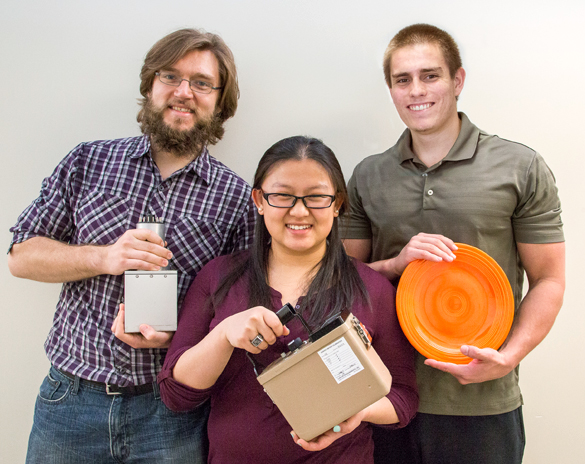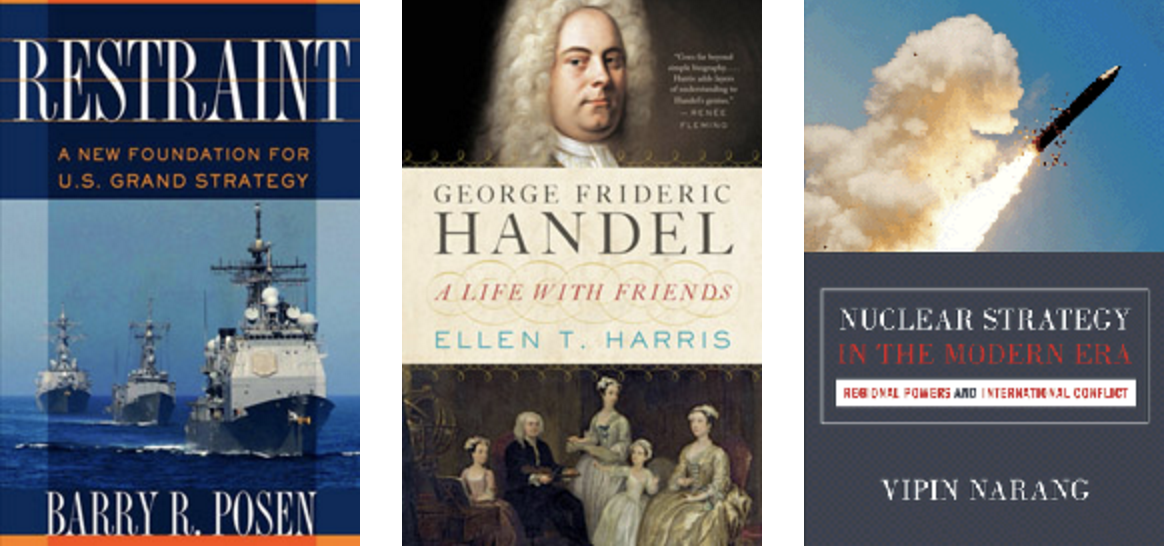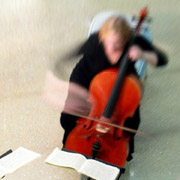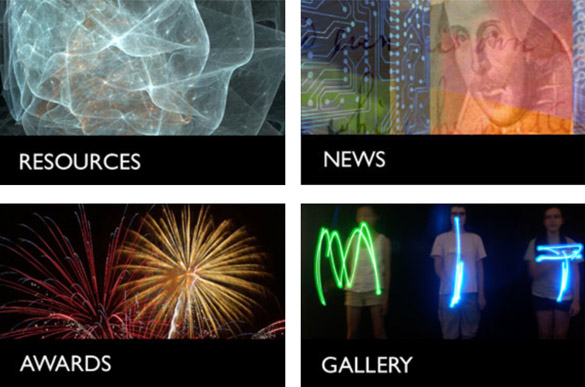Said and Done
Summer 2014 Edition
Published by the Office of the Dean
MIT School of Humanities, Arts, and Social Sciences

QUOTABLE
"For historians our laboratories are libraries and archives. It’s where we play around with the raw materials, where we make discoveries. We experiment. We put one set of theoretical ideas about how society is structured, how culture works, next to the raw data—that might be a set of letters, or oral histories—in the same way that a chemist puts a theory against a particular set of chemicals in a reaction."
— Chris Capozzola, Associate Professor of History at MIT
FEATURE
Pulitzer Prize-winning journalist Deborah Blum to head KSJ at MIT | Wade Roush is Interim Director
Deborah Blum will join MIT in 2015 as the director of Knight Science Journalism at MIT, a fellowship program that enables superb mid-career journalists to spend a year at MIT studying everything from science and technology to history, literature, policy, and political science. Blum will assume the role in July 2015. During the 2014-15 academic year, the KSJ program will be led by Wade Roush, former editor-at-large at the online innovation news service Xconomy.
Story by SHASS Communications | From Wade Roush's blog: "Back to the Future at MIT"

FEATURE
Gamma sonification | MIT students make music from particle energy
Midway through Keeril Makan's “Introduction to Composition” class, three MIT nuclear engineering students had invented a technique to create sound textures from the energy of the decaying atom.
Story by SHASS Communications

L to R: Keldin Sergheyev 15, Helen Chang Liu ‘16, and Nick Lopez ’15
HONORS AND AWARDS
SHASS announces the 2014 Levitan Awards for Excellence in Teaching
The 2014 Levitan Awards recognize nine outstanding teachers, nominated by students.
Story by SHASS Communications
MUSIC + FILM
MIT AMPS wins New England Emmy Award for “Awakening”
Documentary on music composed by Jamshied Sharifi ’83 and performed by MIT student musicians to honor the Arab Spring.
Story + Documentary
HISTORY OF SCIENCE AND TECHNOLOGY
Leo Marx receives Centennial Medal from Harvard's Graduate School of Arts and Sciences
Announcement | About Leo Marx | 3Q on "The Machine in the Garden" by Leo Marx
PHILOSOPHY
Sally Haslanger wins Gittler Award
The Joseph B. Gittler Award is given for an outstanding scholarly contribution in the field of the philosophy of one or more of the social sciences.
Story
PHI BETA KAPPA, MIT CHAPTER
MIT chapter of Phi Beta Kappa honor society inducts 89 students
Xi of Massachusetts, the MIT chapter of the Phi Beta Kappa Society, held its 2014 MIT induction ceremony on June 5, admitting 89 graduating seniors who excelled at MIT not only in technical subjects, but also in the humanities and social sciences.
Story + Photogallery by SHASS Communications | MIT PBK chapter website

L to R: Graham Jones, Lister Brothers Career Development Professor, Associate Professor of Anthropology; Phi Beta Kappa "key"; Students receiving awards at the 2014 ceremony
NEW RESOURCE
The online SHASS Guide to Innovation in Education
This new four-part websection includes a trove of information and resources about teaching innovation in our School. The section is designed for use by SHASS faculty who are thinking about developing a new class, or a new approach in an existing class. Information includes funding sources, guidelines and timelines, awards given, and examples of successful endeavors.
Explore the SHASS Guide to Innovation in Education
RESEARCH
Research Portfolio
Research is the engine for the School's capacity to help meet the world's great challenges. To name just a few areas of impact, MIT SHASS research helps alleviate poverty, safeguard elections, steer economies, understand the past and present, inform health policy, assess the impact of new technologies, understand human language, and create new forms at the juncture of art and science.
Research Portfolio
LINGUISTICS
New paper amplifies hypothesis on deep origins of human language | Shigeru Miyagawa
Miyagawa, Kochi-Manjiro Professor of Japanese Language and Culture at MIT, and his co-authors think that some apparently infinite qualities of modern human language, when re-analyzed, display the finite qualities of languages of other animals—meaning that human communication is more similar to that of other animals than we have realized.
Story by Peter Dizikes at MIT News | Paper at Frontiers in Psychology
SCIENCE WRITING
The New Yorker | One of a Kind | Seth Mnookin
What do you do if your child has an ultra-rare condition that is new to science?" In this New Yorker essay, Mnookin, co-director of the Graduate Program in Science Writing, explores how open science, next-generation sequencing, social media, and families are affecting the way rare diseases are discovered, studied, and treated.
Article in The New Yorker | Audio interview on WBUR

L and R: Details, "Protein NGLY1 PDB 2ccq," illustration by Emw; Creative Commons; Center; Seth Mnookin, Associate Professor of Science Writing, Co-director, Graduate Program in Science Writing
POLITICAL SCIENCE
3 Questions | Kenneth Oye on the regulation of genetic engineering
Political scientist discusses regulatory gaps in assessing the impact of “gene drives.”
Story by Peter Dizikes at MIT News
HISTORY
The Historian's Lab | Christopher Capozzola
"For historians our laboratories are libraries and archives. It’s where we play around with the raw materials, where we make discoveries. We experiment. We put one set of theoretical ideas about how society is structured, how culture works, next to the raw data—that might be a set of letters, or oral histories—in the same way that a chemist puts a theory against a particular set of chemicals in a reaction."
Story by Laurie Everett for Spectrum Continuum
POLITICAL SCIENCE
3 Questions | Johannes Haushofer on the psychology of poverty
Does a mental “feedback loop” prevent the poorest from exploring ways to change their lives?
Story by Peter Dizikes at MIT News
LITERATURE
Melville scholar Wyn Kelley sails aboard the Charles W. Morgan
Kelley has spent more than 30 years researching the works of Herman Melville, particularly his whaling novel Moby-Dick; she was among those selected to sail this summer on the last surviving 19th-century whaling ship from Melville's era.
Story by Kathryn O'Neill, SHASS Communications
ECONOMICS
Q&A | David Autor on U.S. inequality issues among the “99 percent”
In an article in Science, MIT economist Autor moves the U.S. inequality discussion beyond the 1% vs. 99% comparison. And, in the long run, he says, "the best policies we have to combat inequality involve investing in our citizenry. Higher education, and public education, is America’s best idea. Those investments also include preschool, good primary and secondary schools, and adequate nutrition and health care."
Story by Peter Dizikes at MIT News

L to R: Chris Capozzola, Associate Professor of History; Wyn Kelley, Melville scholar, MIT Literature;
David Autor, Professor of Economics
POLITICAL SCIENCE
The Politics of Public Opinion | Christopher Warshaw
Do our opinions matter? Political scientist Christopher Warshaw is working to find out, as he uncovers the impact of public opinion on the policy process and strategies to create environmental change.
Story at MIT Joint Program on the Science and Policy of Climate Change
Related Story by Peter Dizikes at MIT News: Warshaw's research on voters influence with city governments
POLITICAL SCIENCE
The varieties of nuclear strategy | Vipin Narang
In a new book, Narang, an assistant professor of political science at MIT, examines the multiple political uses of nuclear weapons, and how realities have changed since the Cold War. Today, most countries with nuclear weapons have smaller arsenals, and are regional powers, not global forces. For these reasons, Narang argues that the U.S. approach to nuclear doctrine needs an overhaul.
Story by Peter Dizikes at MIT News
ANTHROPOLOGY
SHASS faculty and alumni present Public Lab at the White House Maker Faire
In the Public Lab project, artists and social scientists meet with technologists, community activists and others to create "citizen science."
Report at Public Lab | Kitemappers — Video about the Public Lab
Bookshelf
The research of MIT's School of Humanities, Arts, and Social Sciences appears principally in the form of books and publications, and music and theater productions. These gems of the School provide new knowledge and analysis, innovation and insight, guidance for policy, and nourishment for lives.
Take a look

Restraint, A New Foundation for U.S. Grand Strategy, by Barry R. Posen, Ford International Professor of Political Science (Cornell University Press, 2014); George Frideric Handel, A Life with Friends, by Ellen Harris Professor of Music Emerita (W.W. Norton, fall 2014); Nuclear Strategy in the Modern Era, by Vipin Narang, Assistant Professor of Political Science (Princeton University Press, 2014)
COMMUNITY
Coco Fusco joins MIT SHASS as an MLK Visiting Scholar for 2014-15
The School of Humanities, Arts, and Social Sciences is honored and excited to welcome the acclaimed artist and writer Coco Fusco to the MIT community for the 2014-15 academic year. Fusco will serve as a visiting associate professor in the Comparative Media Studies/Writing (CMS/W) program. She will be hosted by Edward Schiappa, the John E. Burchard Professor of Humanities and head of CMS/W, and Pulitzer Prize-winning author Junot Díaz, the Rudge and Nancy Allen Professor of Writing.
Story by SHASS Communications
A Remembrance of Thomas Parke Hughes (1923-2014) | by Rosalind Williams
Thomas Parke Hughes came to MIT in the 1960s as an assistant professor, then moved on to other institutions, where over time he developed into the nation’s pre-eminent historian of technology. He had a long-standing affection for MIT, and returned in 1998 as a distinguished visiting professor. Through his books and teaching, which conceptualized technology and engineering as part of broader human culture and history (thus, affected by politics, ecnomics, and moral ambiguity), Hughes made an immeasurable contribution to the life of the Institute.
Remembrance by Rosalind Williams
Elizabeth Garrels retires after 35 years; her creative legacy continues
Elizabeth Garrels, who retired in Spring 2014 after 35 years at MIT, earned a reputation during her MIT career as a generous colleague and as a teacher who presented challenging classes—the kind that MIT students relish. In honoring her contributions to MIT, Ian Codry, current head of MIT Global Studies and Languages, notes that Garrels' "path-breaking scholarship in combining literature and history with language studies has helped the section evolve into the stronghold it is today."
Story by Beth Dougherty, SHASS Communications

L to R: Coco Fusco, artist and writer, MLK Visiting Scholar, 2014-15; Thomas Parke Hughes (1923-2014), pre-eminent historian of technology; Elizabeth Garrels, Professor of Spanish and Latin American Studies Emerita
IN THE MEDIA
Full list
Compilation of recent media publications, interviews, and appearances by SHASS faculty
More
A Creole solution for Haiti's Woes | Michel DeGraff and Molly Ruggles
In a piece for The New York Times, Professor of Linguistics Michel DeGraff and Molly Ruggles, Senior Educational Technology Consultant at MIT OEIT, write of the need for Haitian students to learn in Haitian Creole (Kreyòl), rather than French, which is spoken by only 5% of the Haitian population. “Creole holds the potential to democratize knowledge, and thus liberate the masses from extreme poverty,” DeGraff and Ruggles explain.
Commentary in The New York Times
Haitian Creole classroom, photograph courtesy of Michel DeGraff
"This proposed use of Creole in Haiti is akin to René Descartes’s elevation of French as a language for science in 17th-century France. Descartes switched from Latin to make science accessible to the French-speaking populace....A similar story happened in 17th-century Italy, where Galileo was among the first scientists to write in the vernacular instead of Latin. Creole in Haiti can similarly become an academic language, a tool for nation building and an instrument of progress."
— Professor Michel DeGraff and Molly Ruggles, in The New York Times
RESOURCES
SHASS Calendar
Forthcoming events
MIT SHASS social media
Facebook | Twitter
SHASS stories on MIT News
Bookmark this page
SHASS News
Subscribe for updates as news is posted
RSS News | RSS Multimedia
The Listening Room
MIT's finest music online

TOUR de SHASS
Explore MIT's humanities, arts and social science fields
SHASS Publications Directory
Online portal
Arts at MIT Calendar
Concerts, theater, genre-defying works
Archive
SHASS research and feature stories by MIT News
